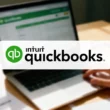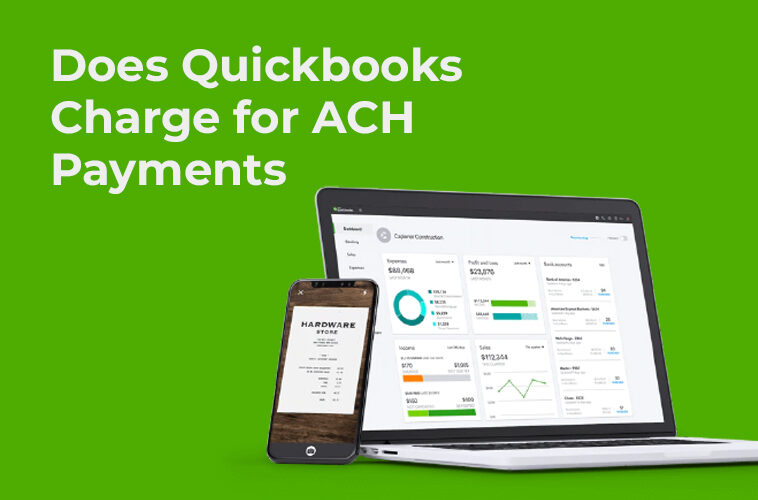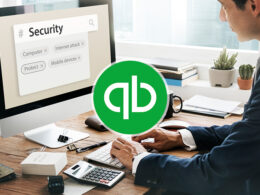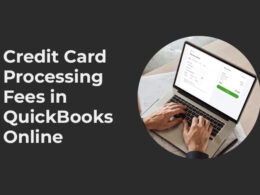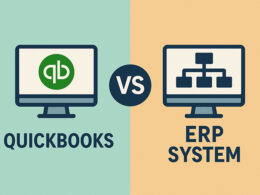Do you use QuickBooks software but are not sure whether they charge for Automated Clearing House (ACH) payments? If you have been struggling with these questions, this article is a must-read for you.
It’s essential to understand the payment processing fees associated with QuickBooks ACH payments, and how they compare to other providers.
The cost of payment processing is a critical concern for all small business owners using accounting software like QuickBooks. Knowing whether QuickBooks charges for ACH payments can reduce uncertainty and help you make more informed decisions about payment processing.
In this article, I will explain QuickBooks’ ACH payment services and fees, compare them against other providers, and highlight some essential factors to consider when choosing a payment processor for your business.
Keep reading to learn weather Quickbooks charge for ACH payments or not.
Does QuickBooks charge for ACH payments?
Yes, QuickBooks charges a processing fee for ACH payments. According to the QuickBooks website, the rate per transaction for ACH bank payments is 1%. However, the fee is capped at $10 per transaction, which means that regardless of the transaction amount, QuickBooks ACH payment fees will never exceed $10 per transaction.
Despite the fees, processing ACH payments through QuickBooks is a convenient and efficient way to transfer funds electronically for business owners.
Alternatives to QuickBooks ACH Services
If users are looking for alternative ACH processors outside of QuickBooks, there are several options available. For instance, Stripe, Square, and PayPal all offer comparable ACH services.
However, the fees charged by these alternative processors are slightly different from QuickBooks. Users will need to compare these fees and other features to determine what works best for their business needs.
I did a brief comparison as per my research that might help you. Check below table –
| Provider | Monthly/Annual Service Cost | Fee per Transaction | Transaction Amount Cap | Mobile Integration | Setup Fees | Additional Fees |
|---|---|---|---|---|---|---|
| QuickBooks | $0-$70/month | 1% | $10 | Yes | None | PCI compliance, chargeback, bank transfer |
| Stripe | None | 0.8% | $5 | Yes | None | Chargeback, international fees |
| PayPal | None | 1% | None | Yes | None | Cross-border, chargeback, currency conversion |
| Square | None | 1% | None | Yes | None | Cross-border, refund, chargeback |
Notes:
- QuickBooks charges a monthly or annual service cost depending on the plan level, in addition to the transaction fee for ACH payments.
- Stripe charges a lower percentage fee than QuickBooks but has a lower transaction amount cap.
- PayPal does not have a transaction amount cap, but charges a higher percentage fee than QuickBooks and other providers.
- Square charges the same percentage fee as PayPal but has no transaction amount cap. They also charge extra fees for refund and chargeback.
Additional Fees QuickBooks May Charge
In addition to ACH payment fees, QuickBooks has other types of fees that users should be aware of. These include monthly and annual subscription fees for access to specific QuickBooks functionalities.
Additionally, QuickBooks charges other miscellaneous fees such as a PCI compliance fee, chargeback fee, and a fee for bank transfers.
When comparing fees across different processors, users need to factor in all these extra costs to get an accurate picture of their total expenses.
Also Read – Does QuickBooks Report to IRS?
Wrapping it up…
In conclusion, QuickBooks charges a fee for its ACH payment services, but it is reasonable and competitive with other leading processors in the market.
Business owners should consider their specific needs and budget when comparing QuickBooks ACH services against other options in the market.
Hope this information helped you to decided either you should go with QuickBooks ACH Payments or choose other options available in the market.

